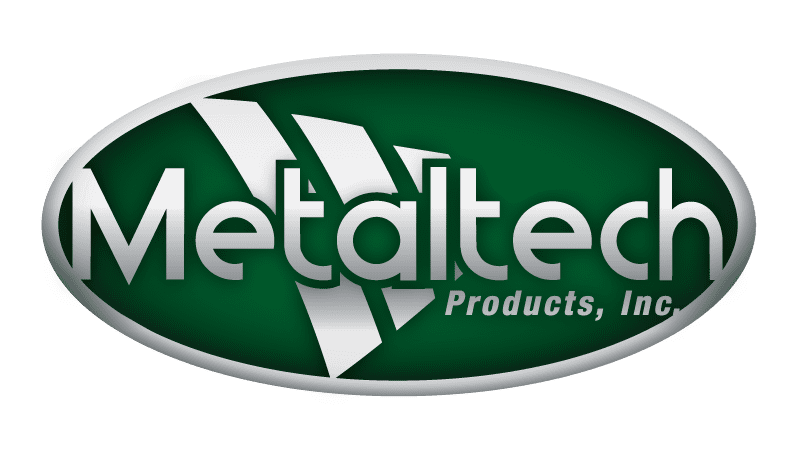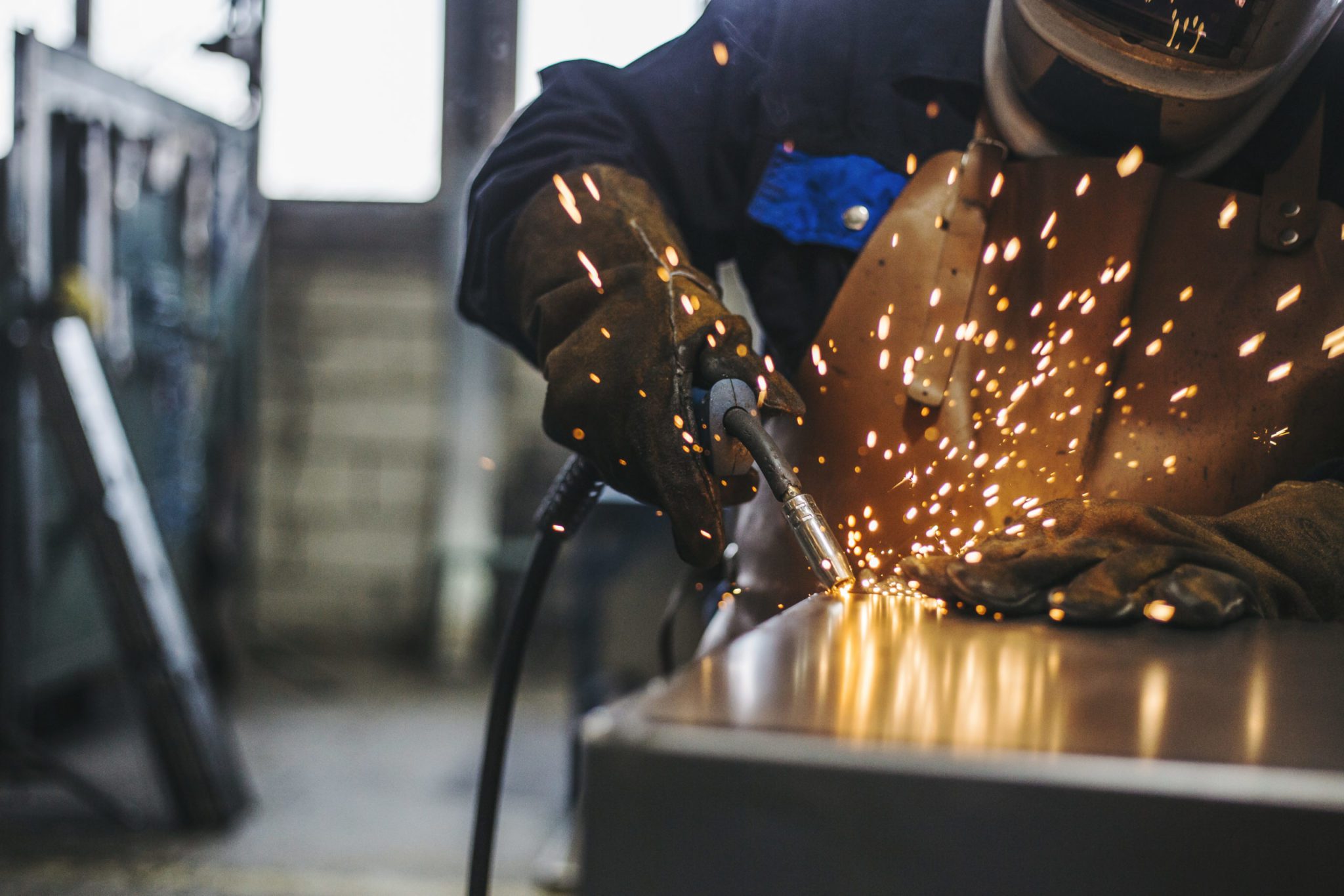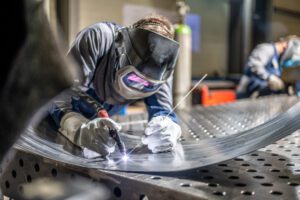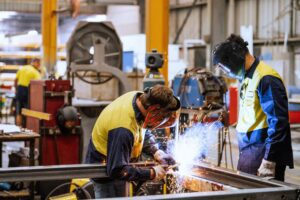Are you considering a career as a welder fabricator?
Welders for production and fabrication are in high demand. These jobs often come with complete benefits packages, whether you are a recent high school graduate or you’ve got some experience. Getting into a welding career doesn’t require an advanced degree. Many welders start in entry-level positions that provide ample on-the-job training.
A welding career is great for those who enjoy being active and working with their hands. Welder fabricators develop components for real-life applications. These components are used in home appliances, automobiles, airplanes, heavy machinery, furniture and toys.
What Does A Welder Fabricator Do?
The most basic definition of welding is heating metals until they melt and join together. Some welding processes use a filler metal to join the materials. In a manufacturing setting, welder fabricators perform these standard arc welding processes: GMAW (MIG), GTAW (TIG) and SMAW (stick welding). Often, fabrication welders will master MIG welding before moving on to other welding processes.
Welding Processes
During MIG welding, the welder operates a MIG gun, which feeds the appropriate amount of filler wire when the trigger is pressed. An electric current moves along the filler wire and creates an arc, which melts both the base metals and filler.
With TIG welding, the fabrication welder controls more parts of the process and usually adds the filler by hand. Unlike MIG welding, the electrode is not consumed during TIG welding. After the operator starts the arc and melts the base metals, they dip the filler into the molten metal to create the weld.
Day-to-Day Duties of a Welder Fabricator
The duties and responsibilities of a welder fabricator include:
- Manufacture components. As a welder fabricator, you will help manufacture parts for assembly. You will operate a welding gun, electrodes and wire filler. The project materials and specifications will determine what welding process you use.
- Operate equipment and tools. In addition to welding equipment, you may also use angle grinders, clamps, ball peen hammers and needle-nose pliers.
- Read blueprints. You will read and interpret blueprints and drawings. Before you begin any project, you will review the dimensions and weld specifications.
- Inspect welds. You will ensure welds meet exact specifications and test welds for strength and tolerance.
- Clean equipment. You will tidy your workspace and clean equipment after use. Cleaning equipment helps maintain it and keeps you (and other operators) safe.
A welder fabricator’s job can include more than welding. You may help with other manufacturing processes like cutting or forming. Many welders also fit or assemble components and assist with design or price estimation.
What Skills Do You Need?
Successful welders have a combination of technical and physical skills. Engineering or design knowledge will also help you excel.
- Attention to detail. Welders must have excellent attention to detail to ensure parts are on spec. Manipulating beads of molten metal requires focus and precision. Any misstep could cause a mistake. Attention to the process also helps keep you safe.
- Basic math skills. Calculating dimensions, measuring and reading blueprint specifications is part of the job. Proficiency with basic math helps welders work efficiently.
- Manual dexterity. Grip and hand dexterity is a necessity. Welders must have steady hands and good reflexes as they control equipment.
- Stamina. In manufacturing or fabrication, welders stand for long periods and lift equipment and materials. Taking a job as a welder requires physical strength.
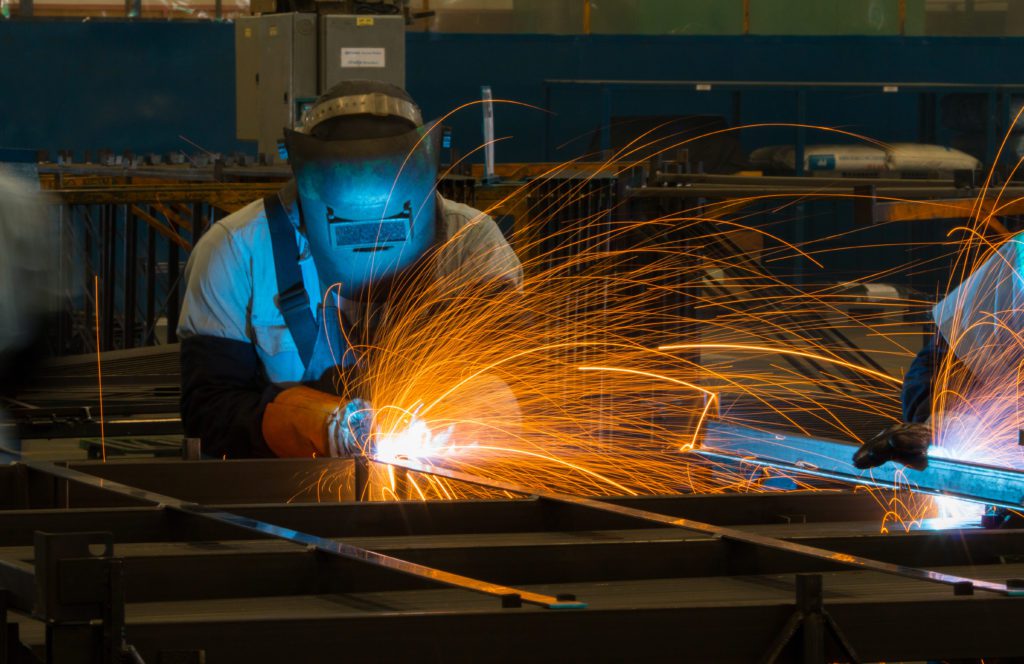
What Education Do You Need?
You don’t need an advanced degree to become a fabrication welder. Most companies prefer welder fabricators to have a high school diploma or GED. High school graduates with little to no experience are often hired for entry-level positions. Companies provide on-the-job training and mentorship.
If you are interested in a welding career, you can also explore associate’s programs in welding or metal fabrication at local trade and vocational schools. These programs give you a leg up in the industry. You’ll gain technical knowledge and practical experience.
Welding certification courses are available through the American Welding Society (AWS), and it’s a good idea to complete these welding certifications and tests as you start your career. You will want to pass the AWS D1.1 standards for working with steel.
Where Will You Work?
Welder fabricators work on the shop floor. You will be surrounded by people operating machines and manipulating metal. Keep in mind that the floor of a production facility can be loud. You may wear earplugs regularly. Safety glasses and steel-toed shoes may be required.
Welding can be dangerous, and you should never view the light produced from welding with the naked eye. When you weld, you will wear a welding mask and gloves.
So, is Welding a Good Career Choice for You?
Welding is a tough job that requires patience, but it’s a craft you can hone throughout your lifetime. A career as a welder fabricator can set you up for a great future, regardless of your level of education or experience. No college degree is required to start your career, but earning a welding certificate is highly recommended.
Starting at entry-level, you will receive benefits packages to support you and your family. Most metal fabrication companies offer medical, dental and retirement benefits, along with competitive wages. A consistent demand for welders in the production and fabrication industries means welders don’t have to worry about their jobs becoming obsolete.
Welders get to complete a variety of projects when working for a metal fabricator. You won’t get bored working on the same project or performing the same task for days on end. New projects keep things fresh and provide a challenge based on their complexity or material. As a welder fabricator, you may also help out with other departments, which can break up your days.
Is welding fun? That depends on how you’d like to spend your time. People who enjoy working with their hands and being in an active environment thrive as welder fabricators. Though you have to follow a project’s given specs, you get to refine your craft—or your art—every day.
No degree requirement. Great pay. Full benefits. A skill you’ll love. It’s time you became a welder fabricator.
Are you ready to apply for a job as a fabrication welder? Are you looking for more fabrication and production jobs?
We’re hiring. View our available job openings.
Questions about Metaltech? Want to visit our facilities? Contact us for more information about our employee benefits and application process.
